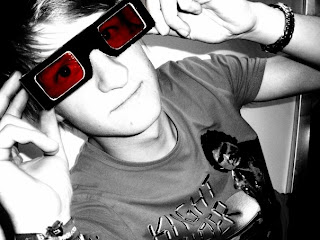For our first group brief, 'How to....' we have been asked to use our conceptual and practical design skills to provide a solution to the issue of staying safe in Leeds. This issue is particularly prominent for younger people and people new to the city, primarily students. We felt that whatever we create doesn't necessarily need to inform the students of all the risks, but more to suggest solutions and advice to prevent potentially dangerous situations. We felt that throwing a series of negative facts and figures would not even interest them enough to even take in let alone shock them into doing anything productive.
We discussed the dangers associated with living in Leeds or any city, such as general crime, violence, drugs, unprotected sex, traffic accidents, etc... but what we all agreed was that many of these unsafe situations occur as a consequence of being intoxicated by alcohol and often while on a night out. When drinking alcohol you inhibitions are lowered, your judgment impaired and you become far more vulnerable and susceptible to do more dangerous things.
In response to this, we decided to angle our solution towards the concept that safety comes in numbers and that by staying with your friends and not allowing yourself or your friends to be alone at any point on a night out, you are far less likely to find yourself in a dangerous situation.
As we are trying to appeal to students, we felt that a simple flyer really would not grasp their attention in the way that we needed to, so we decided we needed to come up with something a little more interactive. The first thing that came into my head was a string of paper men, perhaps with the slogan 'Safety in numbers' on one side, the other with some slightly more detailed advice. Although this would still come under the category of flyers, it is slightly more tactile and interesting to the viewer. Another idea was to create a flyer in the style of a cocktail menu, listing some fantasy cocktails, with names like 'Punch up' and 'One night stand', the ingredients listing off what could have been consumed that night to have lead to each scenario. In the end we came up with some more interactive ideas and have settled on stickers, cardboard sunglasses, beer mats and bottle labels. We decided that it is when people are out and drinking that they would benefit from our advice. No one generally plans to end up on their own but if they were reminded by the very drink in their hand or the mat on the table, then the message might go in before its to late. Equally, when people are drinking, people find stickers and other more novelty items appealing and are more likely to hang onto them than they would be with a simple flyer.






















